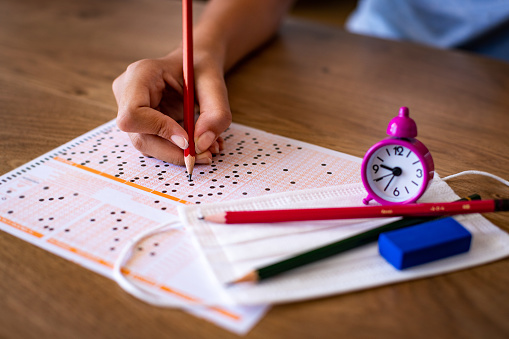IELTS is an open English test that widens one’s scope for a bright career overseas. IELTS aims to assess a candidate’s English proficiency through four categories — Reading, Writing, Speaking, and Listening. Among the four sections, the two that worry IELTS aspirants are Reading and Writing. The reading and Writing section of the IELTS exam is worth a concern as there is no second scope to rectify your answer. What a student reads or writes during the IELTS exam is what they are marked.
To help students prepare easily for Reading and Writing section of IELTS, here is suggesting some innovative ideas that will improve their vocabulary and also, help them boost their score. Writing Section Structure and framework Your IELTS write-ups should not be a flow of thoughts on a piece of paper. You need to prioritize and plan your ideas in separate paragraphs so that together they convey a solid idea to the examiners. IELTS trainers suggest following the primitive rule of intro, body and conclusion. However, you can later this only if you are sure you have a better plan to map your write-ups. It’s important that you maintain a formal or informal approach all across your writing. Punctuation, syntax and voice Though these may sound very minor issues to be taken care of, but a mistake in punctuation, syntax or voice can change an entire idea that you want to convey. Examiners may misunderstand your idea and of course, that affects the marking. It’s important before you start practicing writing, you make a note of all probable types of punctuation, voice and errors. That will help you attain excellency in the IELTS writing section. Read-plan-write-revise For the writing section, read-plan-write-revise is considered a key remedy. Read implies thoroughly going through the question, planning is shaping your thoughts, writing is putting the first draft on the answer script while the process ends with revision. Initially this entire read-plan-write-revise structure may sound time consuming and long. However, with practice it’s possible to apply the same during final IELTS exam. Crisis, climax and conflict On deciding the topic, you will be writing, try to develop an interesting crisis, climax or conflict. Every word you frame till this peak point of the write-up must be interesting to grasp the attention of the examiner. While checking many such answer script like yours, its alone he uniqueness of your writing that can lead to a good IELTS score. Reading Section Using peripheral eye sight abilities When you read during IELTS exam, while your mouth reads the first word, your eye should look at the following one. This is indeed tough to do at the first go. It requires practice and should be tested by experienced professionals. To develop peripheral eye sight ability, you can start from reading newspaper, hoardings or any kind of text in front of you. Build your own dictionary Vocabulary varies from person to person. Its therefore important for you to realise where your vocabulary stands and how you map to improve it. As the first step for good stock of words, you can make your own dictionary. In this, note all new words and phrases you come across along with meanings and grammatical details. During leisure time, browsing this dictionary will help you improve your English. This dictionary can be used for many other purpose other than IELTS. Be an avid reader When preparing for IELTS Reading section, you need to be an avid reader. It implies you will try to read anything you come across. From a newspaper, story book, letter, email — do not skip a scope to read new content. While reading, do keep an ear on your pronunciation and reading speed. Approach and attitude During IELTS reading, examiners do not look for a flawless reader. They keep an eye on your confidence where even if you miss a word, you need to maintain a uniform approach from start to end. Do not think, you can simply bring in the confidence on the final day. Continuous practice can make you a better reader than others at the exam centre. Both writing and reading section of IELTS exam requires in-depth practice and assessed by professional trainers.







